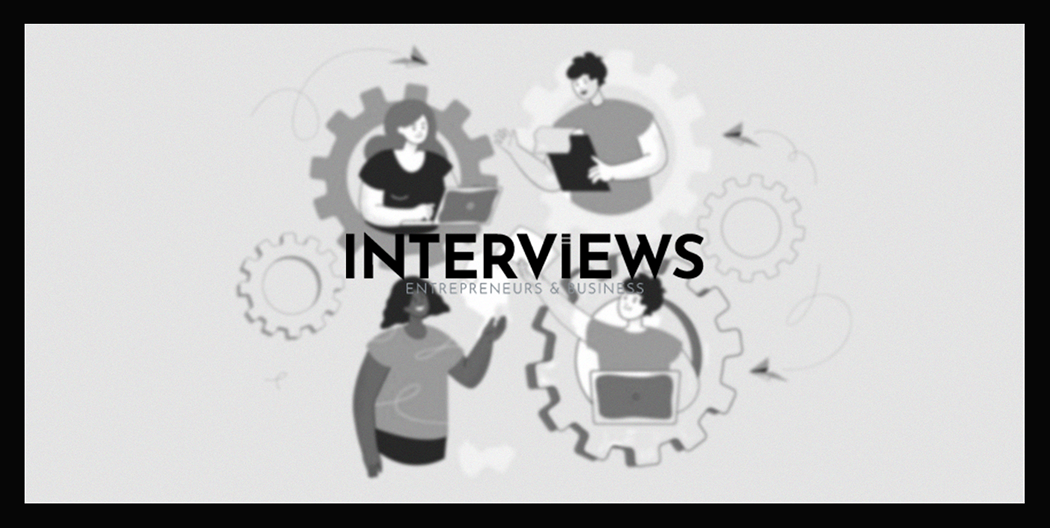White Label Software: Your Brand, Their Engine – Untangling the Mystery
Have you heard of white label software? It may sound fancy, but what is it? You’re not alone in this confusion. This concept hides in plain sight. Let us peel back the layers. White label software is not complicated jargon. It is straightforward and useful. It’s like ordering a cake and icing it with your branding.
What Exactly is White Label Software? – The Nitty-Gritty Definition
Let’s get down to business. Here are two clear definitions to avoid jargon.
- White-label software is created by one company but can be rebranded by another. Imagine it as a chameleon. It adapts to express your company’s colors. The reseller, potentially you, customizes it to fit your business needs.
- It’s like buying ready-made furniture. You take it as-is and customize with your logo, colors, and name. You offer it to customers as your creation. Sneaky? Maybe. Smart? Definitely.
This means leveraging someone else’s work and claiming it as your own. It is business savvy at its best.
How White Label Software Actually Works – The Behind-the-Scenes Magic
Let’s explore how this whole process works. There’s nothing mysterious here, just smart maneuvers.
- It starts with a software creator. They custom-build the core software. They are the architects of the digital realm, coding away.
- The reseller steps in next. That could be you. You take the pre-built software and personalize it. Add your branding, your colors, and maybe some tweaks to make it uniquely yours.
- Then, you sell the rebranded software under your name. Your brand gets the spotlight, even if you didn’t build it. You’ve taken the cake and added custom icing to serve it as your own dessert.
The term “white label” means a product with a blank label. This space awaits your brand’s identity. Historically, resellers slapped their labels on generic products. Today, it’s slicker, with digital goods.
White labeling lets the original creator step back. They focus on building software while you manage branding and sales.
The Shiny Benefits of White Label Software – Why It’s a Smart Move
The benefits are the exciting part. Why consider white label software? Here’s why it is compelling.
- Cost-Effectiveness: Developing software from scratch is costly. It takes time and money. White-label software is a budget-friendly shortcut. Someone has already developed it, saving you cash and effort.
- Faster Time to Market: Speed is crucial today. White label software lets you rush to the market. You skip months of development, testing, and debugging. You have a product ready almost instantly.
- Scalability on Steroids: Need to scale? White label software helps you do that. It can adjust to sudden user demand or steady growth. Scalability is built-in, making small businesses appear larger.
- Focus on Your Core Genius: Software development can be overwhelming. Do you want to get lost in algorithms? White label software allows you to focus on your strengths. It frees your resources for important activities.
- Expanded Product Line, Instantaneously: Want more offerings? White label solutions allow quick expansion without headaches or costs. Imagine broadening your menu overnight. It’s scalable and efficient.
In summary, white label software means smart leverage. It helps you achieve more with less hassle and expense. It is a significant business advantage.
White Label Software in the Wild – Real-World Examples
Theory is good, but let’s see white label software in action. Here are some real examples.
- E-commerce Platforms: Want to launch an e-commerce business? No need to build it from scratch. Companies can white-label existing platforms. They provide a ready-to-brand online store. Shopify exemplifies this model.
- CRM Software: Customer Relationship Management systems are essential but complex to create. Companies can white-label a CRM and sell it as their own. Zoho allows this with its powerful platform.
- Email Marketing Software: Email marketing remains effective. Businesses can use white-labeled platforms. Mailmunch offers this service, enabling rebranding without coding.
- Web Development Platforms: Need fast website creation? White-label platforms are the answer. Simvoly allows agencies to build sites under their branding. It’s like having a construction crew ready for action.
The white-label model also exists beyond software. Cosmetics, electronics, and household goods utilize it too.
Local health stores often sell white-labeled products. Your favorite coffee might come from a larger company. Health and wellness brands frequently use white-label manufacturers. They can offer many products under their brand names.
This approach uses existing expertise and infrastructure. It allows brands to expand while highlighting their unique value. Smart business move, right?
Things to Ponder – Considerations Before Diving In
Consider this! White-label software isn’t a magic solution. A few things are key before you dive in. Think of it as checking the forecast before a picnic. It ensures a smoother experience.
- Customization Caveats: White-label software allows some customization. However, it’s not infinite. You can tweak and brand it, but not too freely. Imagine customizing a pre-designed template versus starting from scratch. You have options, but you cannot completely change core functions.
- Support Responsibility: A vital note – with white-label software, customer support is your job. You are the go-to for customers, even if you didn’t create the software. It’s like hosting a party with no cooking credits. You need to tackle questions, resolve issues, and keep customers content. The original provider may offer backend help, but primary support falls on you.
- Intellectual Property Vigilance: You’re using someone else’s software, so proceed cautiously with intellectual property. Ensure you’re not crossing legal boundaries. Respect the original provider’s rights. The reseller must act responsibly about potential infringements, requiring a solid white-label agreement.
Go in aware. White-label software is powerful but needs proper understanding and limits.
Is It Legal? – The Legality Lowdown
Let’s tackle the big question – is white labeling legal? The answer is a loud YES. This isn’t some shady deal. It’s a genuine and widely accepted practice. Think of it as regular business with a clever angle.
- Perfectly Legal Practice: White labeling is not illegal. It’s widely accepted across industries. Reselling existing products is fine as long as you follow regulations and intellectual property laws.
- Rights and Regulations: Doing it right matters. Companies must secure rights to rebrand and sell products. They need to respect trademarks, patents, and copyrights. It’s structured, not chaotic; it’s about agreements and legal respect.
- White Label Agreements – The Rulebook: White label agreements are crucial. They define your arrangement with the original provider. They cover pricing and branding rules, along with intellectual property rights. Consider it a detailed map keeping all parties aligned and avoiding legal pitfalls.
Breathe easy; white labeling is legal, smart for business growth, and provides a way to expand without heavy lifting. Ensure you have proper agreements and abide by laws.
The Flip Side – Risks and Disadvantages to Consider
No rose blooms without thorns, and white label software has risks. Let’s discuss potential downsides you should know. It’s like identifying traffic jams before your route starts.
- Customization Constraints: Limited customization exists here, as noted earlier. Control is restricted when customizing. You can style it but work within the software’s limits. If you desire specific, unique features, white labeling may not work well for you. It is akin to choosing from a menu rather than cooking yourself.
- Customer Support Challenges: You must handle customer support duties. If the software has issues, you’re responsible for managing them. Original provider’s poor quality can lead to customer service headaches and damage your brand’s image. Choose partners carefully to avoid taking on someone else’s problems.
- Pricing Predicaments: With many reselling white-label products, price wars are common. This limited control over pricing can squeeze profits due to competition effects. Imagine selling similar products in a crowded market where price dominates.
- Loyalty Labyrinth: Building brand loyalty can be harder with white-label goods. Unique products help differentiate brands; without them, strong customer connections struggle. Customers may choose similar products elsewhere if they see small differences.
- Lack of Ownership and Control: Ultimately, you don’t own the software; you essentially rent it. You rely on the original provider for updates and long-term software direction. Your control over its future is partial, bound by your white-label agreement’s terms.
- Inconsistent Quality Risks: The quality of your white-label software ties directly to the original provider’s quality. If they cut corners, it reflects directly on you. Reliability issues can damage your brand faster than you expect.
Being aware of these risks doesn’t aim to scare but fosters realism and strategy. Select white-label partners wisely, grasp limitations and plan for potential challenges.
The Price Tag – Understanding White Label Software Costs
Let’s discuss money: how much does white-label software really cost? There’s no uniform answer, but a general ballpark exists. It’s like asking car costs: that varies by model, make, and features.
- Variable Costs: Costs vary widely by complexity and features. Simpler solutions tend to be cheaper; feature-rich platforms command higher prices.
- Entry-Level Estimates: Basic white-label solutions can range from $2,000 to $10,000 for straightforward applications with limited functionality.
- Complex Applications: Sophisticated white-label applications can reach up to $70,000 or even higher for custom solutions with extensive features.
Obtaining detailed quotes from potential providers matters to understand the total costs involved. Look for ongoing fees, support costs, and customization charges for a clear ownership picture. Remember that cheaper doesn’t always mean better; value and reliability are key.
White Label vs. The Competition – Understanding the Landscape
White label software isn’t the only option available. Comparing it to related concepts can clarify its position in the software ecosystem, much like comparing vehicle types – each has unique strengths and uses.
- White Label vs. SaaS (Software as a Service):SaaS is broader; many white-label solutions fall under SaaS without every SaaS being a white label.
- With SaaS, you rent software from a provider. They handle maintenance, upgrades, and support. Examples include Salesforce and Google Apps. White label SaaS adds a branding layer. You control branding. Standard SaaS uses the provider’s brand. White label lets you use your own brand.
- White Label vs. OEM: OEM is common in manufacturing. OEMs produce components sold under another company’s brand. In software, it’s about entire platforms. OEMs let companies control product design and features. White label is mainly rebranding existing solutions.
- White Label vs. Private Label SaaS: Often used interchangeably, these terms have subtle differences. Private label SaaS may be developed for a specific customer, allowing control over products, branding, and features from day one. White label usually uses a pre-existing platform for multiple resellers.
- White Label vs. APIs: APIs are building blocks. They let you select specific features to integrate into your software. APIs offer flexibility but require development effort. White labels are ready-made solutions. White labels are faster to deploy than APIs. Think of APIs as individual Lego bricks and white labels as complete sets.
- White Label vs. Black Label: Black label products are high-end items associated with exclusivity. They keep the original manufacturer’s branding. Think of designer fashion lines. White label brands *your* brand on *someone else’s* product; black label showcases the original brand.
- White Label vs. Grey Label: Grey label lies in the middle. Grey label products offer more customization than white label but provide less control than private label. They often entail some modifications but not complete overhauls. They are semi-customizable compared to fully bespoke offerings.
Understanding these differences helps you select the right approach. Do you need flexibility (API), speed (White Label), or complete control (Private Label)? Your answer depends on your goals and resources.
Related Concepts in the White Label Universe
The white labeling world has many related terms. Exploring these helps broaden understanding.
- White Label SaaS Platforms: These platforms are built and owned by a company. They are then licensed to other businesses for rebranding. They are crucial to many white-label software offerings.
- White Label Apps: Generic applications prepared for resale and rebranding. They can be customized with various logos and content. Think of them as pre-built applications ready for rebranding.
- White Label CRM: Pre-built customer relationship management systems designed for rebranding. Agencies can offer a fully functional CRM under their own brand without coding.
- White Label SEO: This concerns services rather than software. Agencies provide SEO services under clients’ brands while outsourcing work to a white-label partner. You send your client’s details, and they handle SEO audits, strategy, and link building under your brand.
- White Label CMS: Content management systems that can be rebranded, often focused on customizing the backend interface. Agencies provide branded CMS solutions for clients. It’s a simpler option often emphasizing rebranding the interface.
- White Label vs. Private Label – The Interchangeable Twins?: These terms often blur in meaning. However, private label may imply more exclusivity from the outset, while white label refers to rebranding a standard product. Practically, they often mean the same thing.
Exploring these concepts provides a bigger picture of how white labeling appears across various business types.
Key Players in the White Label Arena – Names to Know
Who are the key players in white label? Knowing them helps you understand the market. Here are some important names:
- Mailmunch: Specializes in email marketing automation.
- SocialPilot: A platform for social media automation.
- Simvoly: Known for white-label website and funnel building.
- PPC Ninja: Focuses on white-label PPC services.
- Rankur: Provides online reputation management solutions.
- SalesPype: Offers white-label CRM automation tools.
- WotNot: A platform for creating white-label chatbots.
- Shopify: Provides white-label e-commerce solutions.
- Zoho: Offers a robust CRM for white labeling and resale.
This list offers a starting point for finding white-label partners across software categories.
Is White Label Software Profitable? – The Money Question
The big question: is white label software a profitable venture? The answer is YES – it can be lucrative. Profitability hinges on strategy, execution, and insight.
- Lucrative Potential: Yes, white label software can yield profits. Lower start-up costs, quick market entry, and scalability increase profit potential.
- Value Addition is Key: Success with white label isn’t just about reselling software; it’s about adding value. This may include customer support, specialized marketing, or niche focus. Reselling the same software won’t be enough.
- Relationship Building: Strong customer relationships are crucial. Satisfied customers drive sustainable profits. Focus on service and trust-building.
In short, white label software isn’t a quick profit path. It requires effort, strategy, and a focus on customer needs to be profitable. But executed wisely, it can be very rewarding.
Getting Started with White Label Software – Your Launchpad
Ready to explore white label opportunities? Here’s your quick start guide.
- Market Research is Your Compass: Start by analyzing your market. Identify niches with demand but limited competition. Recognize where needs are unmet. Understand your target audience and their challenges.
- Supplier Scrutiny – Find Reliable Partners: Seek reliable white label providers. Look for manufacturers or developers with solid reputations for quality products. Check their reviews and test their offerings thoroughly.
- Brand Development – Your Unique Stamp: Build a strong brand identity. Differentiate yourself in the market with a compelling brand that appeals to your audience.
- Business Structure – Lay the Foundation: Set up your legal and operational processes. Develop sales strategies and customer support systems correctly from the start.
- Launch and Market – Get the Word Out: Once you’re ready, launch your products and market effectively. Use diverse channels to reach your audience and emphasize your unique value proposition.
- Don’t just launch; make sure it’s memorable.
Your journey with white label software takes time and care. Conduct thorough research, choose good partners, build a distinct brand, and prioritize customer value. With the right strategy, you can find success in the white label sector.





